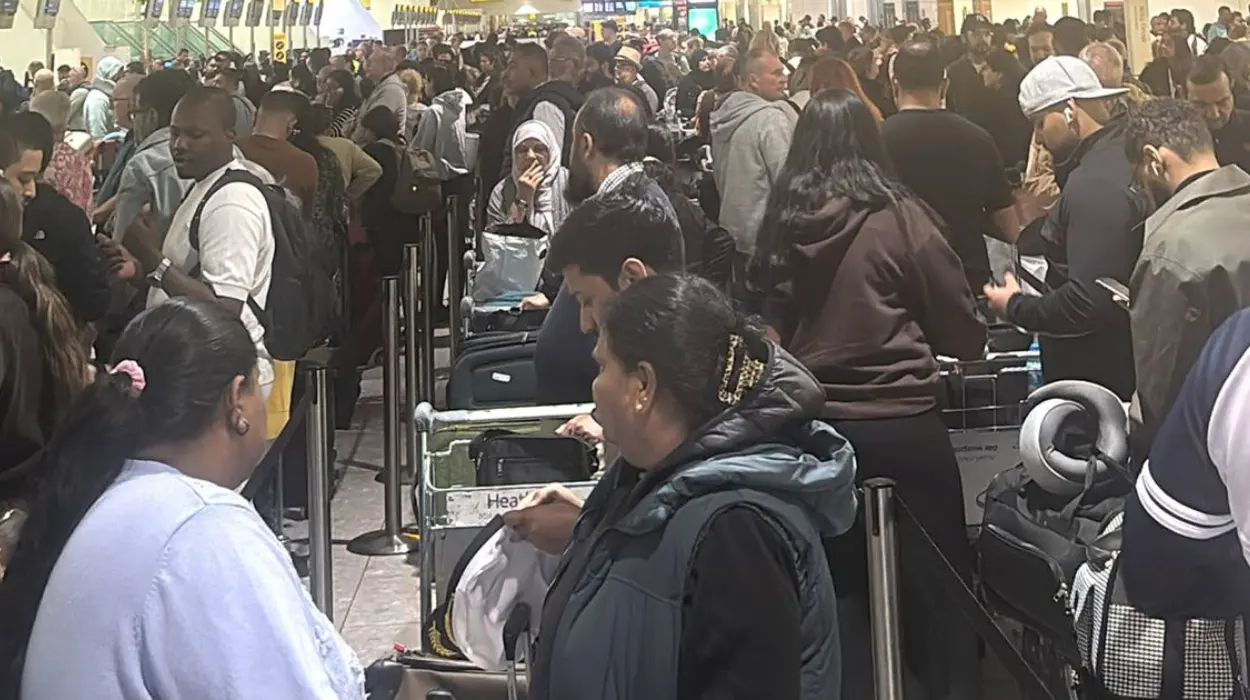Europe (Parliament Politics Magazine) – A widespread cyberattack on September 20, 2025, triggered significant delays at major European airports, including Heathrow, Brussels, and Berlin, disrupting travel for thousands of passengers. Authorities are investigating the breach as airport operations face severe disruptions, with airlines and cybersecurity experts working to restore service.
Major European Airports Face Cybersecurity Crisis
As reported by The New York Times, a coordinated cyberattack struck several key European airports on September 20, 2025. London Heathrow, Brussels Airport, and Berlin Brandenburg Airport were among the affected hubs, with cyber intrusions impacting critical systems that support flight operations and passenger processing. The disruption caused extended security checks, long queues at boarding gates, and flight cancellations, straining airport staff and frustrating travellers.
Airport officials at Heathrow confirmed the attack led to operational delays lasting several hours, with the largest impacts observed during peak travel times. A spokesperson stated,
“This cyberattack compromised vital systems affecting baggage handling and passenger screening, which in turn delayed several flights.”
Brussels Airport also reported that key security and check-in systems were temporarily taken offline during the incident. Sources cited in The New York Times explained that the attack appeared to be sophisticated, leveraging malware aimed at crippling airport technology infrastructure.
Investigations and Response Efforts Underway
Security experts highlighted to The New York Times that the exact perpetrators of the cyberattack remain unknown, but the nature of the breach points toward a highly organised effort. Cybersecurity firms working with the airports have described the attack as “severe but contained,” focusing on restoring systems while preventing further infiltration.
As part of the immediate response, airports implemented enhanced manual procedures to maintain safety and security while systems were offline. Airlines operating from the affected airports were compelled to cancel or reroute flights, complicating travel plans for thousands.
European aviation authorities have called for urgent information sharing and collaboration among international partners to address vulnerabilities highlighted by the attack. The incident has renewed calls for increased investment in cybersecurity infrastructure across the transport sector.
Impact on Passengers and Wider Aviation Sector
Passengers caught in the disruption faced significant inconvenience, with many reporting delays extending beyond standard waiting times. Social media channels were flooded with complaints, photos, and reports of crowded terminals.
The timing of the attack exacerbated existing travel pressures following recent strikes and seasonal demand surges. Industry analysts quoted by The New York Times emphasised the risk that such cyberattacks pose not just to operational continuity but also to passenger confidence in air travel.
Expert Opinions and Official Statements
Cybersecurity analyst Dr. Helen Foster, speaking to The New York Times, noted,
“Airports are increasingly becoming targets for cyberattacks due to their reliance on interconnected digital systems. Protecting these systems is vital to national security and economic stability.”
Meanwhile, a spokesperson for the European Aviation Safety Agency (EASA) cautioned that while modern aircraft systems have strong protections, the broader airport infrastructure needs substantial upgrades to withstand evolving cyber threats.
Broader Context of Cybersecurity Risks in Transport
This incident follows a global trend of growing attacks against transport infrastructure. Similar disruptors have targeted railways, ports, and logistics companies in recent years, highlighting systemic vulnerabilities.
The New York Times coverage points out that these events underscore how critical it is for governments and private operators to prioritise cybersecurity to safeguard essential services against future attacks.
The cyberattack on September 20, 2025, has highlighted the fragility and risk facing the aviation sector in the digital age. Coordination between airport authorities, cybersecurity experts, governments, and international agencies will be crucial in both resolving the immediate crisis and boosting resilience against future threats.
As investigations continue, the aviation community faces mounting pressure to implement robust security measures to protect travellers and maintain confidence in air transport systems worldwide. The situation remains dynamic, with authorities promising full transparency and updates as more information becomes available.

